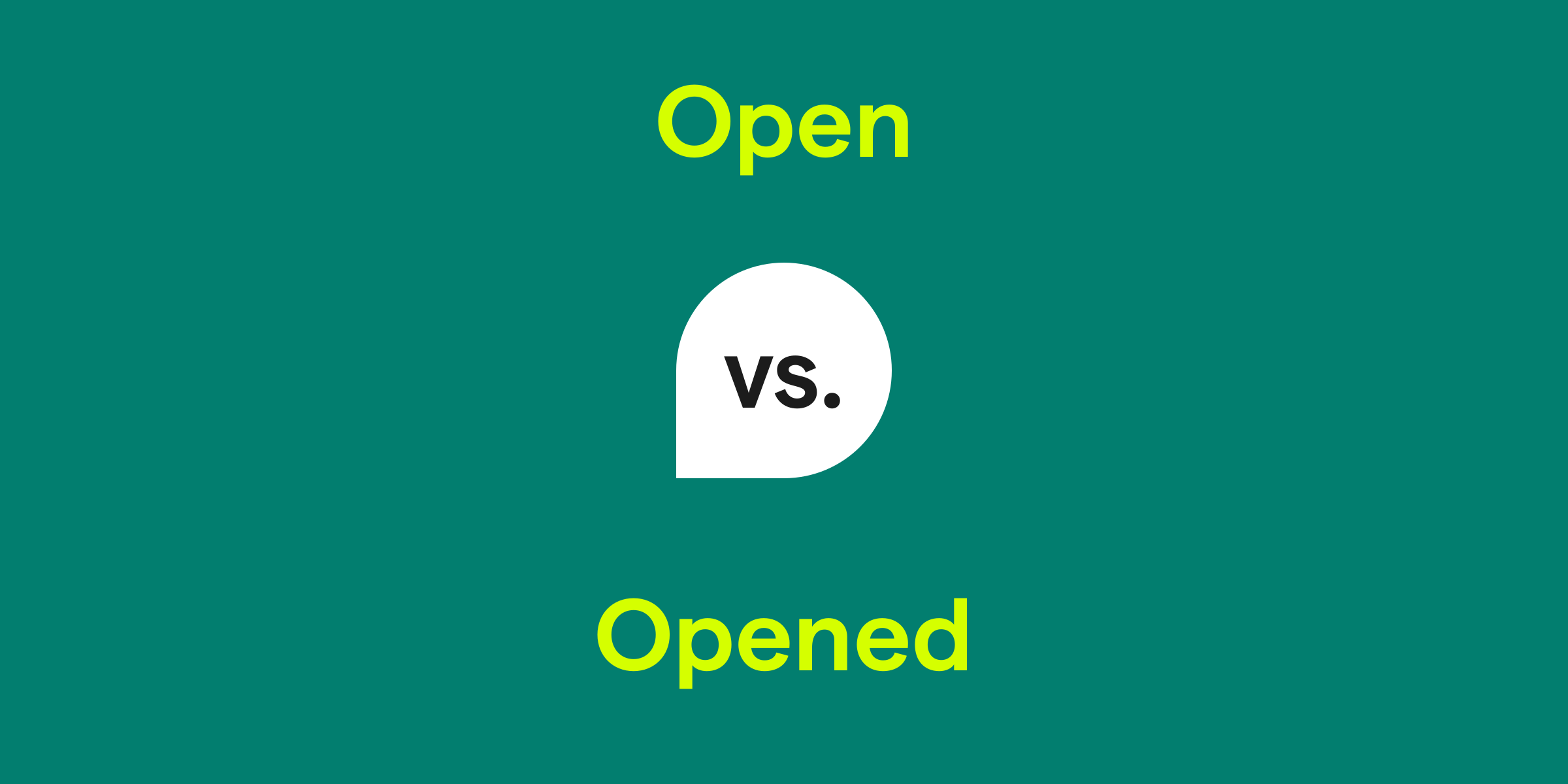Open vs. Opened: What's the Difference?
Understanding the difference between open and opened hinges on grammatical function. Open is typically used as an adjective or a verb that conveys the state of being accessible or not closed. On the other hand, opened is the past tense and past participle form of the verb 'open,' used to describe an action that has been completed in the past.

How do you use the word open in a sentence?
The word open can be used to describe the state of something that is not closed or blocked off, such as a door or window, or to refer to the act of making something accessible. It can also be an adjective describing a place that is ready to admit people like a store, or a state of being receptive to ideas.
Examples of open in a sentence
- Please keep the window open to allow fresh air into the room.
- The new café on the corner is now open for business.
- She approached the discussion with an open mind, ready for new perspectives.
How do you use the word opened in a sentence?
Opened is used to indicate that someone or something has performed the act of making something accessible or not closed. It is the past tense form of 'open,' and thus is best used to describe an action that has already taken place. Opened may also be paired with an adverb to describe the manner in which the action was carried out.
Examples of opened in a sentence
- She opened the gift carefully, not wanting to tear the wrapping paper.
- The museum opened its doors to the public after the renovation.
- John opened his eyes slowly, adjusting to the morning light.
Open and opened definition, parts of speech, and pronunciation
Open definition:
As an adjective, open means not closed or blocked off, allowing access or passage. As a verb, it pertains to the act of moving something into a position that allows access.
Open parts of speech:
Open pronunciation:
The word 'open' is pronounced as /ˈoʊ.pən/.
Opened definition:
Opened is the past tense and past participle of the verb 'open,' referring to the action of making something accessible or not closed, which has been completed in the past.
Opened parts of speech:
Opened pronunciation:
The term 'opened' is enunciated as /ˈoʊ.pənd/.
As an adjective, open means not closed or blocked off, allowing access or passage. As a verb, it pertains to the act of moving something into a position that allows access.
Open parts of speech:
- Adjective: The door remained open throughout the day.
- Verb: We will open the store at 9 a.m. sharp.
Open pronunciation:
The word 'open' is pronounced as /ˈoʊ.pən/.
Opened definition:
Opened is the past tense and past participle of the verb 'open,' referring to the action of making something accessible or not closed, which has been completed in the past.
Opened parts of speech:
- Past tense verb: He opened the door and peered inside the dark room.
- Past participle verb: The letters had already been opened before she arrived.
Opened pronunciation:
The term 'opened' is enunciated as /ˈoʊ.pənd/.
Open vs. opened in a nutshell
To summarize, open functions as an adjective to describe a state or a verb indicating the action of becoming accessible. Opened signifies completed action – it is the past tense and past participle of 'open.' The proper usage relies on the time frame and grammatical role within the sentence. Open sets the scene, while opened takes you back to the moment of action.
Get AI Writing Assistance Wherever You Type
Make sure your vocabulary is on point and every punctuation mark is in the right place, no matter where you’re working. Grammarly works across more than 1 million websites and apps so you can improve your writing without copying, pasting, or breaking focus.

More Commonly Confused Words
Interest piqued? Pore (not pour) over other commonly confused words to help your writing reach peak (not peek) performance.